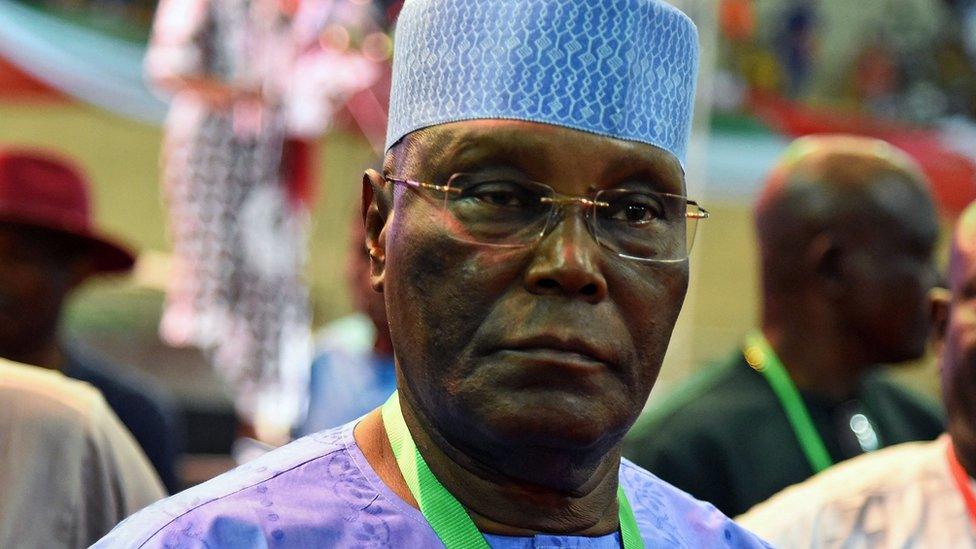Nigeria election: Anger and frustration after poll delay
- Published
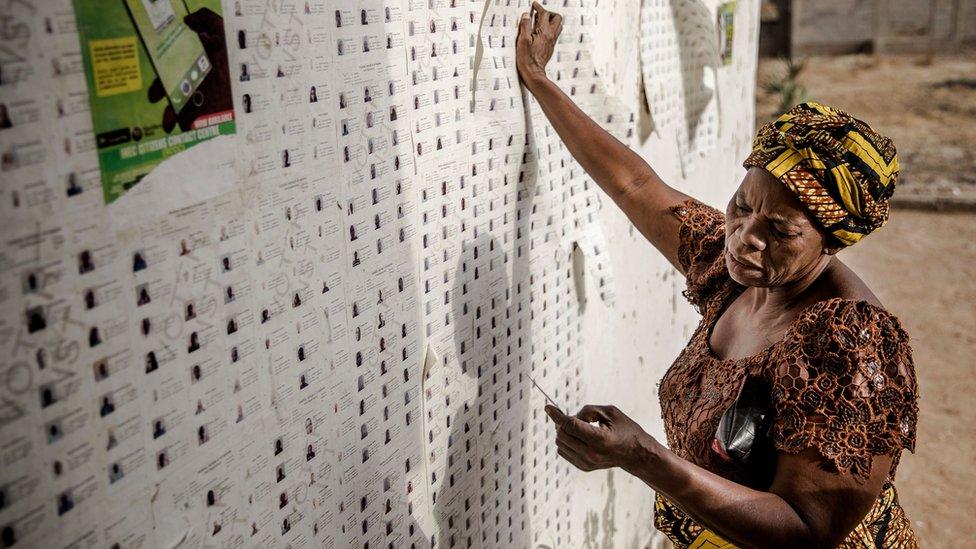
Some voters turned up at polling stations before hearing about the postponement
Many Nigerians woke up wondering whether the last-minute postponement of the presidential election was fake news.
In the middle of the night, just five hours before polls were due to open, Independent Nigerian Electoral Commission (Inec) head Mahmood Yakubu told a hastily arranged press conference that the vote had been delayed by a week because of logistical problems.
Initial disbelief was followed by anger, frustration and resignation.
Musa Abubakar, who travelled 550km (340 miles) from the capital, Abuja, to vote in the far northern town of Daura, told the BBC that he "couldn't believe" what had happened.
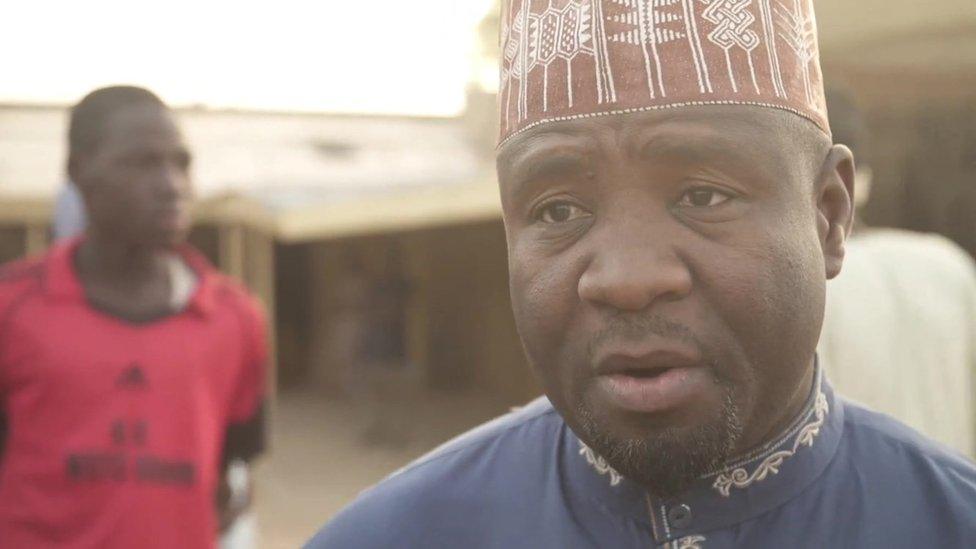
Musa Abubakar travelled 550km to vote only to find out the election had been postponed
He is one of many Nigerians to have made a journey to their home states to take part in the poll.
"I don't know what to do now, I'm not happy," Mr Abubakar said.
He is now faced with the choice of staying in Daura and missing out on work, repeating the journey or not bothering to vote next week.
Anger online
There has been an outpouring of frustration on Twitter, with "postponed", "postponement" and "Inec" all trending. Many, like Bobby Ezidi, have called the electoral commission "incompetent".
Allow X content?
This article contains content provided by X. We ask for your permission before anything is loaded, as they may be using cookies and other technologies. You may want to read X’s cookie policy, external and privacy policy, external before accepting. To view this content choose ‘accept and continue’.

Others are sharing a video clip of Mr Yakubu from a recent interview where he said "there is no possibility of postponement" and wondering what had changed.
Allow X content?
This article contains content provided by X. We ask for your permission before anything is loaded, as they may be using cookies and other technologies. You may want to read X’s cookie policy, external and privacy policy, external before accepting. To view this content choose ‘accept and continue’.

Could the postponement affect turnout?
Those who had intended to vote would have planned their day around it. The whole country was essentially going to shut down as travel was restricted, so the only options were to stay at home or go to the polling station.
Hajiya Sa'adatu said she was "greatly disappointed" to learn of the delay when she came out to cast her vote in the northern city of Kano.
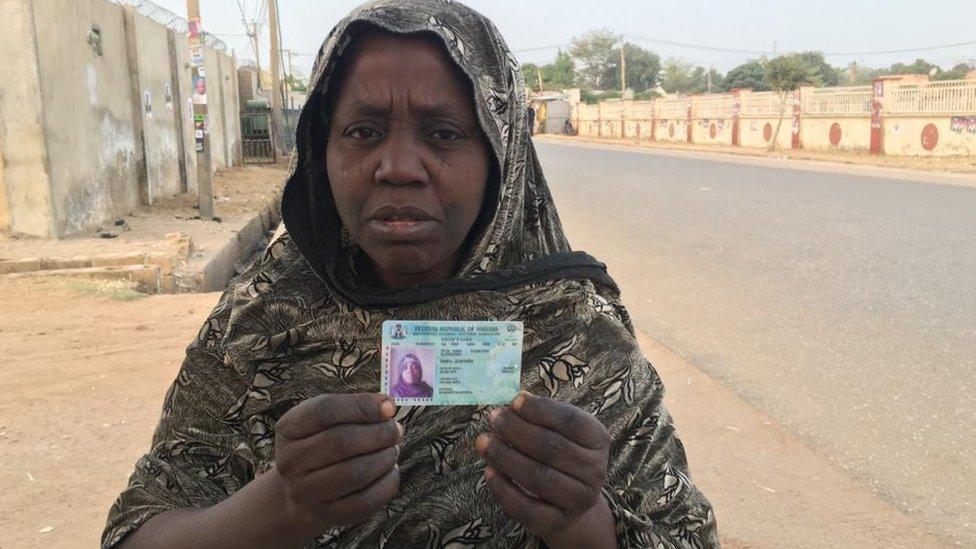
Nigerians like Hajiya Sa'adatu only learned of the news when they woke up
There is a concern that the postponement may lead to fewer people turning out to vote next week.
In the south-eastern city of Owerri, Chukwueze (who would only give his first name) was very angry. "Nigeria has shown that it is corrupt," he said, "and next Saturday we are not going to come out."
But some have not been discouraged.
Abubakar Shettima, in Plateau state in the country's Middle Belt, had started queuing on Thursday, telling the BBC that he wanted to be the first person to vote. Responding to the postponement, he said he was still determined to come back.
And in the city of Yola, in the north-east, Yucehe Ogbu said she would vote next week "because if you vote you can change things".
Trying to be optimistic, some have said that the postponement will mean that the vote should run smoothly next week.
'Can I go to Canada?'
"Canada" is another trending topic on Twitter, as people jokingly ask about the possibility of emigrating.
One person wrote: "My country postpone election at 3am when the nation was asleep. Please accept me as a citizen and I would uphold your values."
Allow X content?
This article contains content provided by X. We ask for your permission before anything is loaded, as they may be using cookies and other technologies. You may want to read X’s cookie policy, external and privacy policy, external before accepting. To view this content choose ‘accept and continue’.

Another has shared a video of himself singing along to what his says is the Canadian national anthem:
Allow X content?
This article contains content provided by X. We ask for your permission before anything is loaded, as they may be using cookies and other technologies. You may want to read X’s cookie policy, external and privacy policy, external before accepting. To view this content choose ‘accept and continue’.

- Published14 February 2019
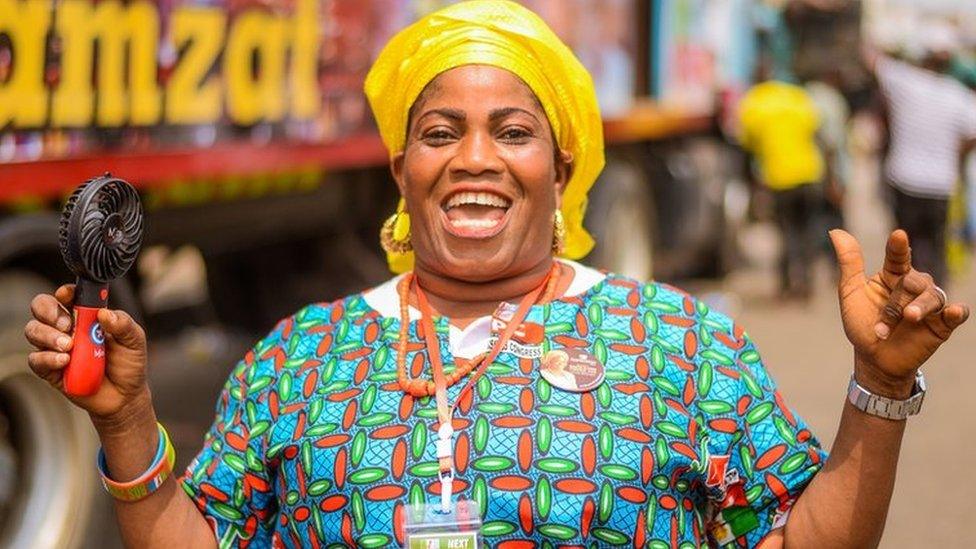
- Published10 February 2019
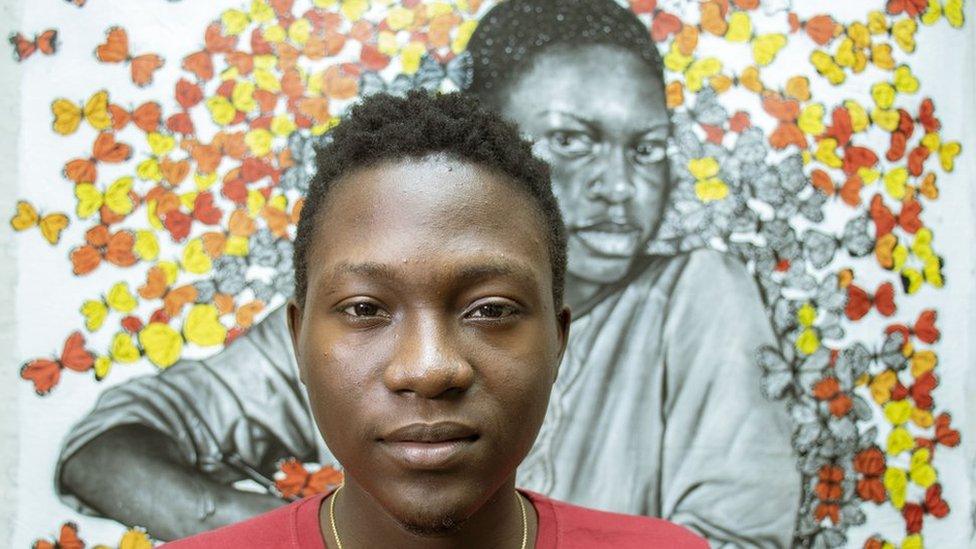
- Published27 February 2019
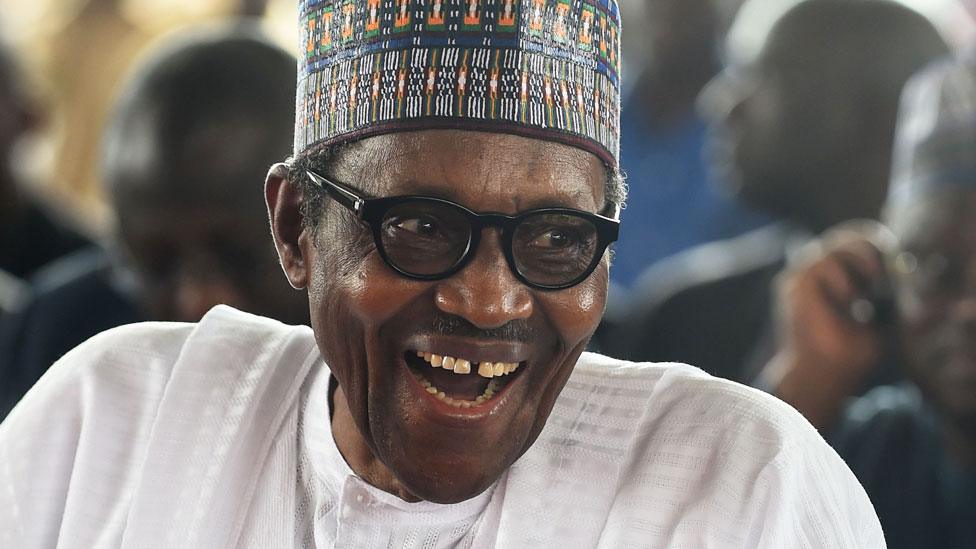
- Published23 February 2023
